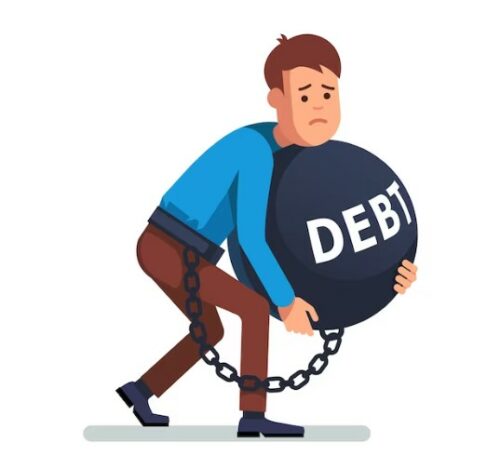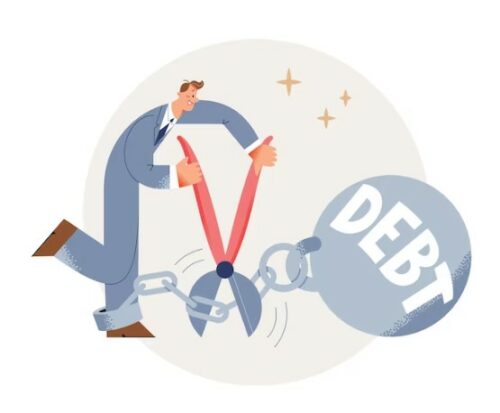“Knowing what you aren’t is just as important as knowing what you are.”
–Me

I recently received an e-mail from someone who had a significant amount of debt and wondered if I was the right person to work with them.
In short, the answer is no. You’re better off spending your limited resources on a Dave Ramsey or Suze Orman book until you can get out of debt. At that point, I can help you out and really help you make strides. Otherwise, you’re paying much for very similar advice unless you just need a drill sergeant to ride your rear end until you’re debt-free.
When you’re under ground, you have to get back to ground zero. There aren’t that many tricks and tips to getting there. It just requires laser-like focus. There’s no shortcut. It is hard and requires work. I’ve been there. I know the feeling.
Here is an excerpt of the response I sent back to the inquiry about whether I could help.
I’ve been in a similar position to you.
Here are some things you can do to work down the debt:

- Take an extra job. No job is too menial when you’re underneath a mountain of debt. Cut grass, deliver pizzas, flip burgers, doesn’t matter. You’re only going to be doing it for long enough to where you get some breathing room and get your debt down below where you’re making minimum monthly payments on it. I taught at Kaplan when I was in grad school to help pay down some of my debts.
- Bring 10 ideas to every prospect you’re selling to. You want your prospective clients to think of you as the person to solve many problems. You want to be the nexus of pain resolution. James Altucher has a great article about how to come up with ideas.
- Get on a budget and STICK TO IT. You did something to get yourself into the situation you’re in, so you have to dig out. The first way to do that is to identify where your money holes are and to plug them. This means knowing where you spend every red penny. Seem daunting?
- Set small goals. If you only look at the top of the mountain, you’ll forget where the next step is. So, set intermediate goals. Set up small rewards for those intermediate goals. As an example, set a goal to reduce your debt by $1,000. When you do, go out for pizza to celebrate.
- Imagine a life where you don’t have to live under such tight constraints. That’s the future you, and that’s where you want to be. When you have the “another *#$*$#* budget” moment, then you can think of that better time, and let it motivate you.
- Sell everything. Think of how you lived when you first moved out of your parents’ house. That’s what I have in mind. You can always go back and buy different furniture at yard or estate sales once you have the debt cleared out.
I have no idea how long it will take for you to get out of debt, but until then, I’m not the best investment of your scarce resources.
Stay connected, keep reading my website and 52 Week Financial Game Plan, reread your Dave Ramsey, and focus on that debt. Reconnect with me once you’ve slayed that monster, and we can work on getting you towards your future goals!
The last thing I want to do is have you spend money on me when you can spend a lot less on Dave Ramsey’s book and get the same advice. I live by a fiduciary duty, after all. Once you’re out of debt, then I’m going to have a different set of advice than you’d get from the talking heads of personal finance, and that’s where I can really move the needle in your financial life.
How does reading this make you feel? Put off? Relieved? Let me know about it in the comments below.
Author Profile
- John Davis is a nationally recognized expert on credit reporting, credit scoring, and identity theft. He has written four books about his expertise in the field and has been featured extensively in numerous media outlets such as The Wall Street Journal, The Washington Post, CNN, CBS News, CNBC, Fox Business, and many more. With over 20 years of experience helping consumers understand their credit and identity protection rights, John is passionate about empowering people to take control of their finances. He works with financial institutions to develop consumer-friendly policies that promote financial literacy and responsible borrowing habits.
Latest entries
 Low Income GrantsSeptember 25, 2023How to Get a Free Government Phone: A Step-by-Step Guide
Low Income GrantsSeptember 25, 2023How to Get a Free Government Phone: A Step-by-Step Guide Low Income GrantsSeptember 25, 2023Dental Charities That Help With Dental Costs
Low Income GrantsSeptember 25, 2023Dental Charities That Help With Dental Costs Low Income GrantsSeptember 25, 2023Low-Cost Hearing Aids for Seniors: A Comprehensive Guide
Low Income GrantsSeptember 25, 2023Low-Cost Hearing Aids for Seniors: A Comprehensive Guide Low Income GrantsSeptember 25, 2023Second Chance Apartments that Accept Evictions: A Comprehensive Guide
Low Income GrantsSeptember 25, 2023Second Chance Apartments that Accept Evictions: A Comprehensive Guide

